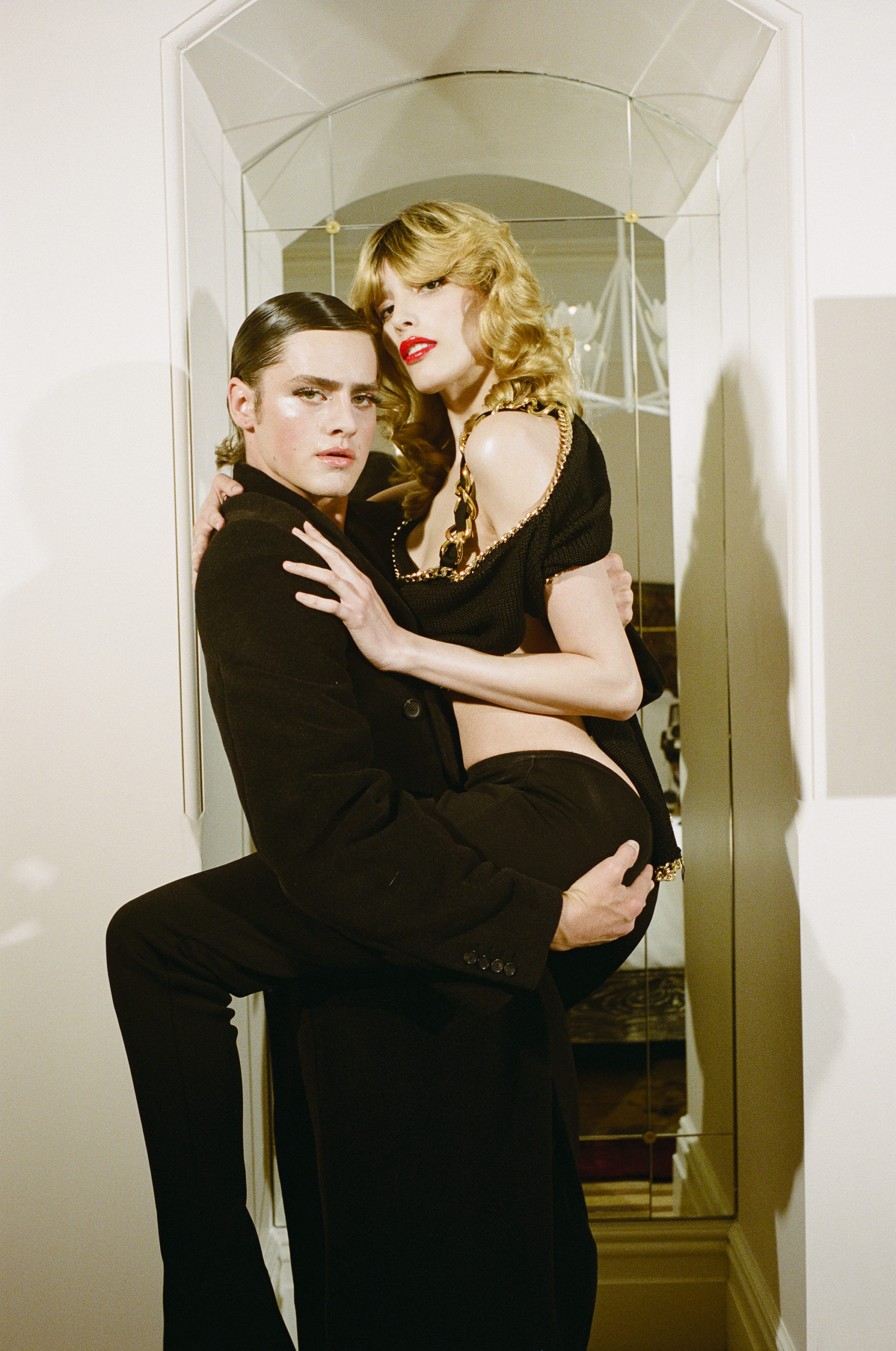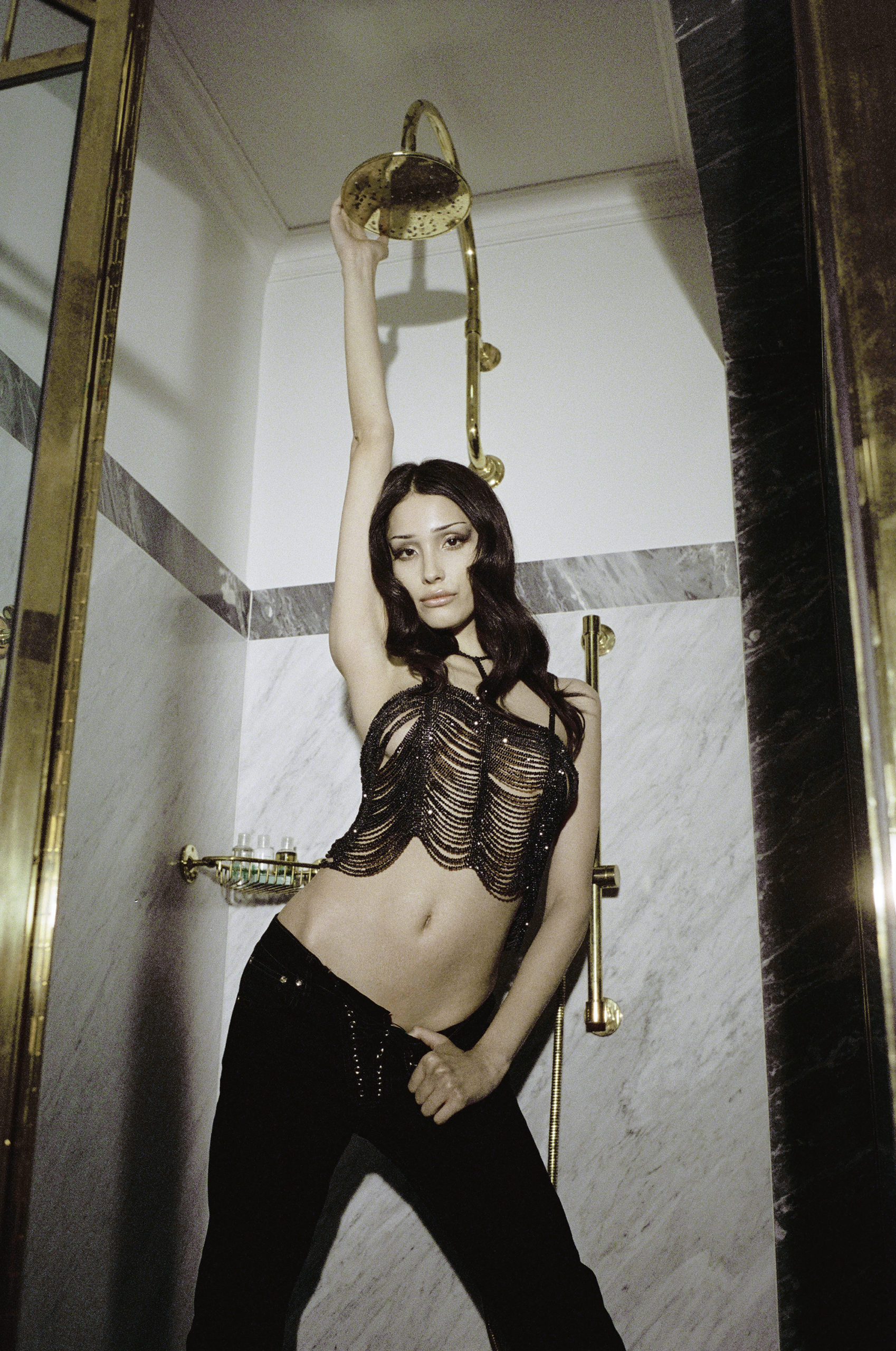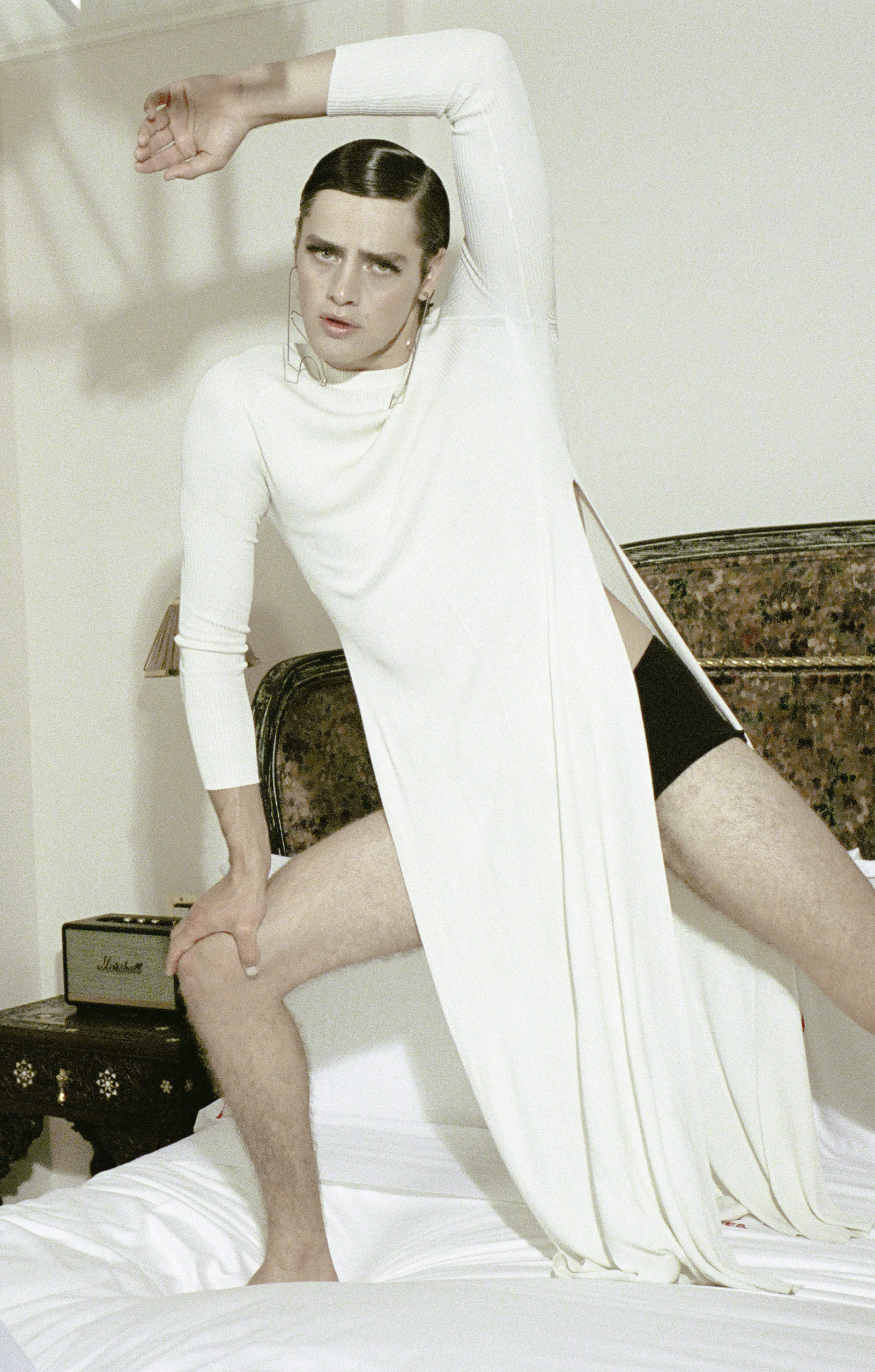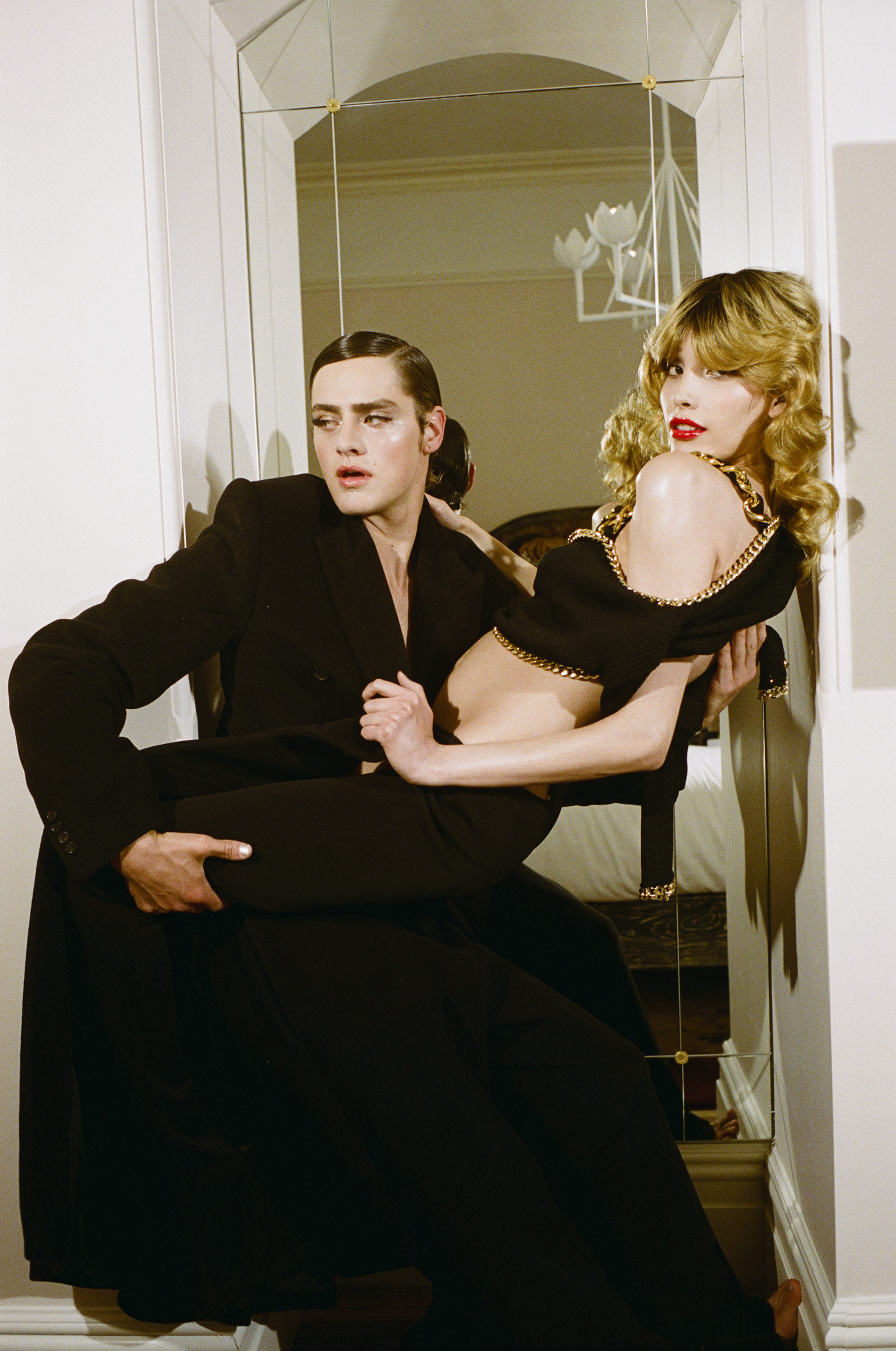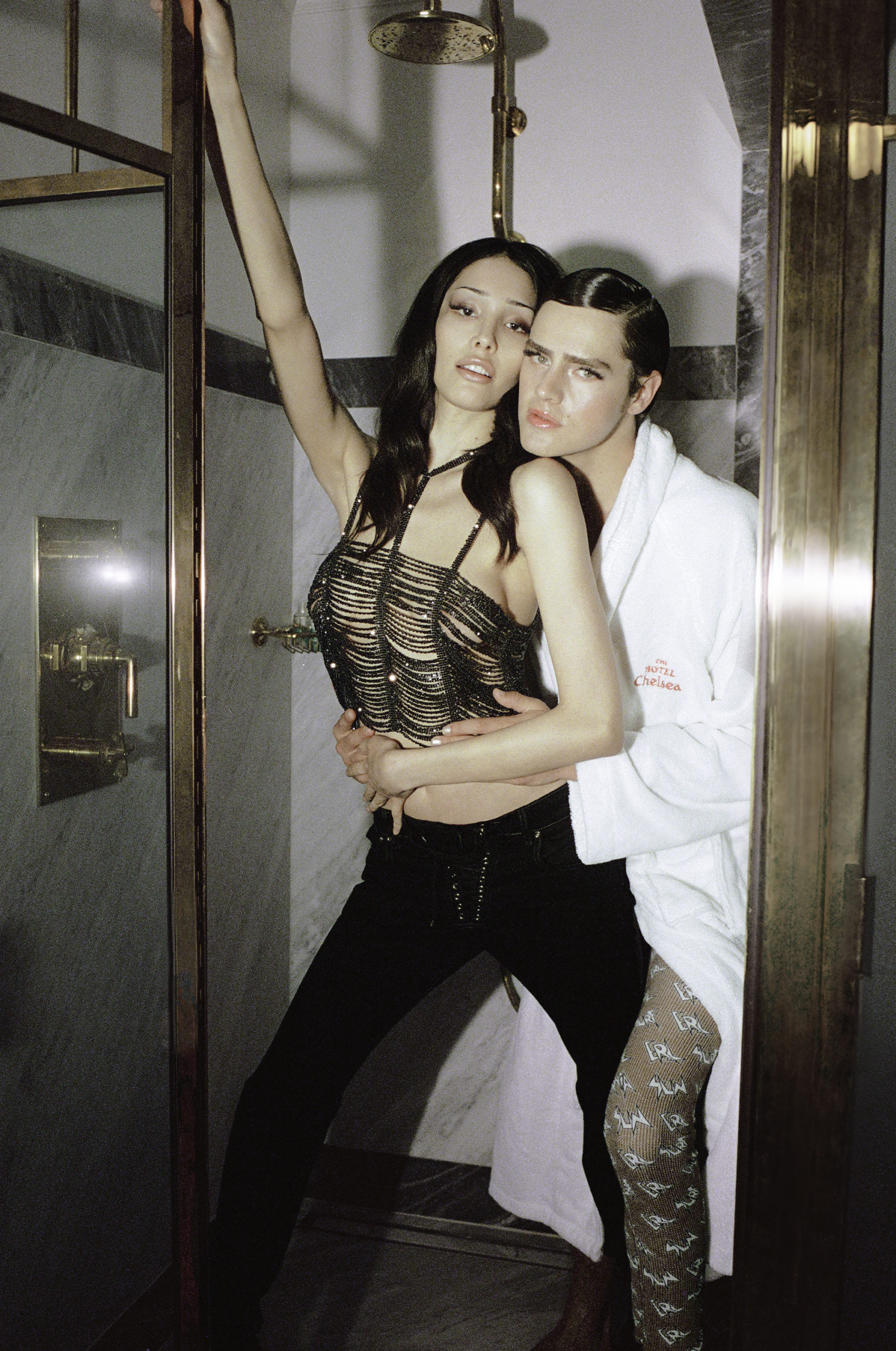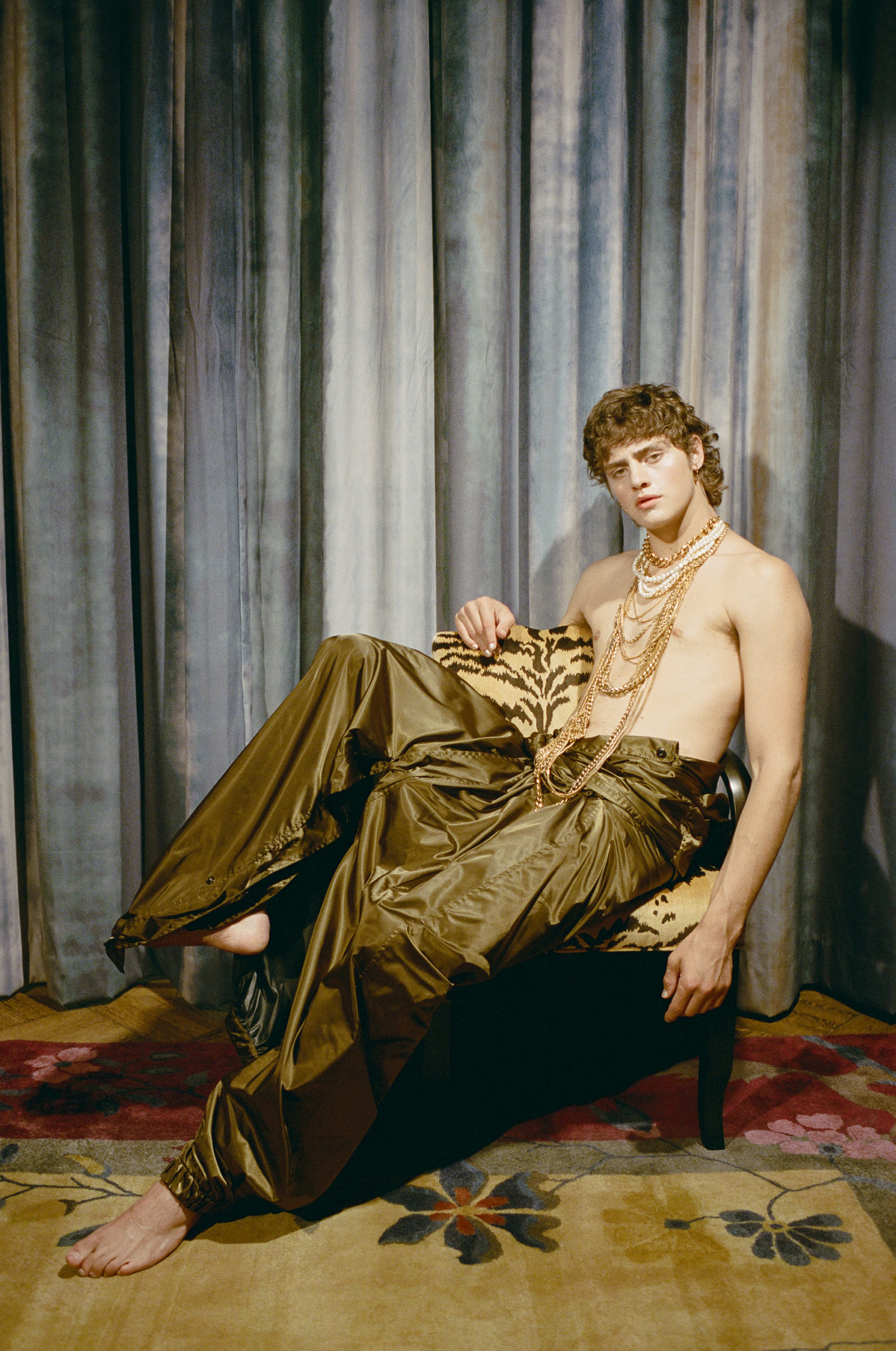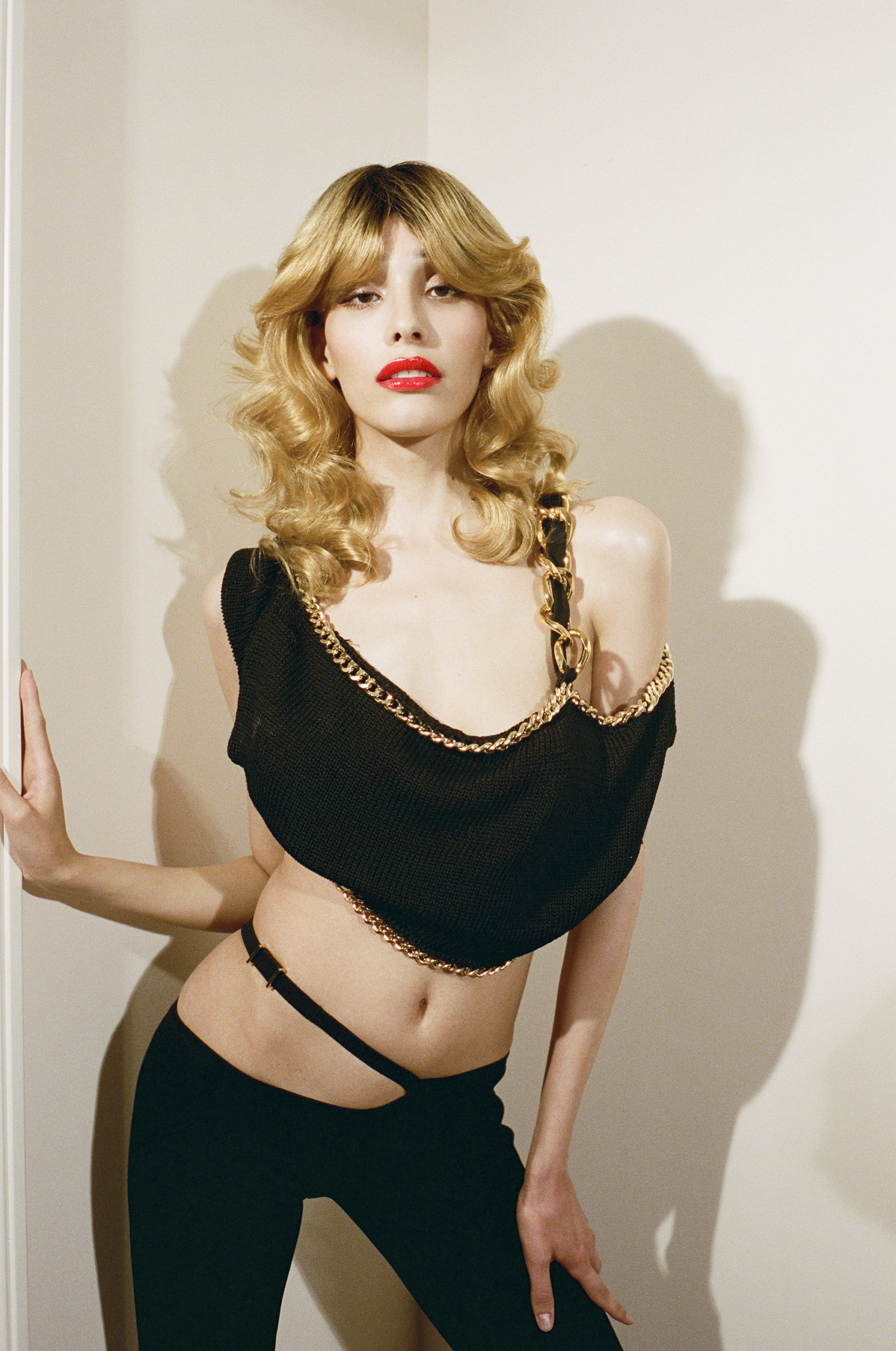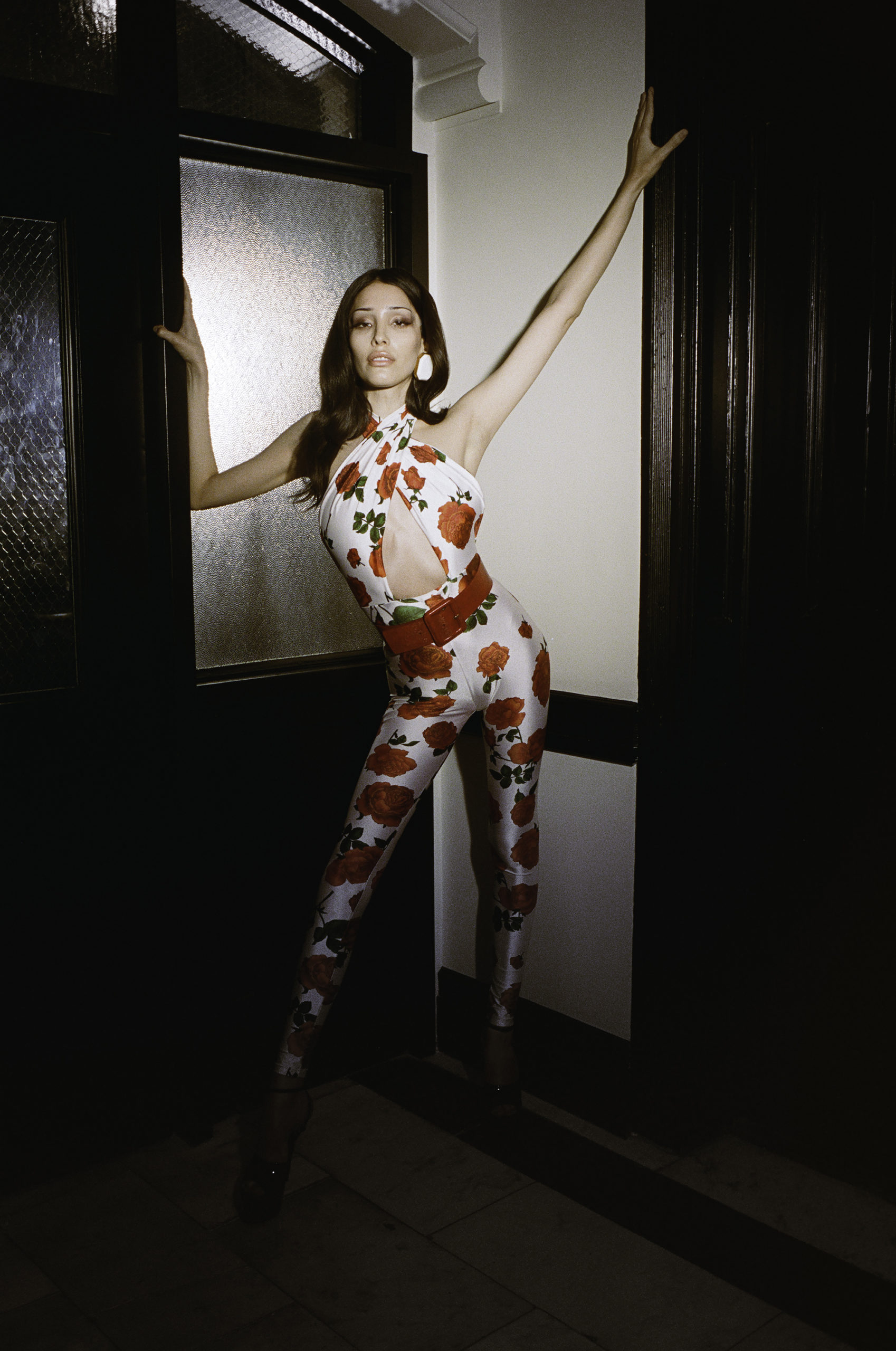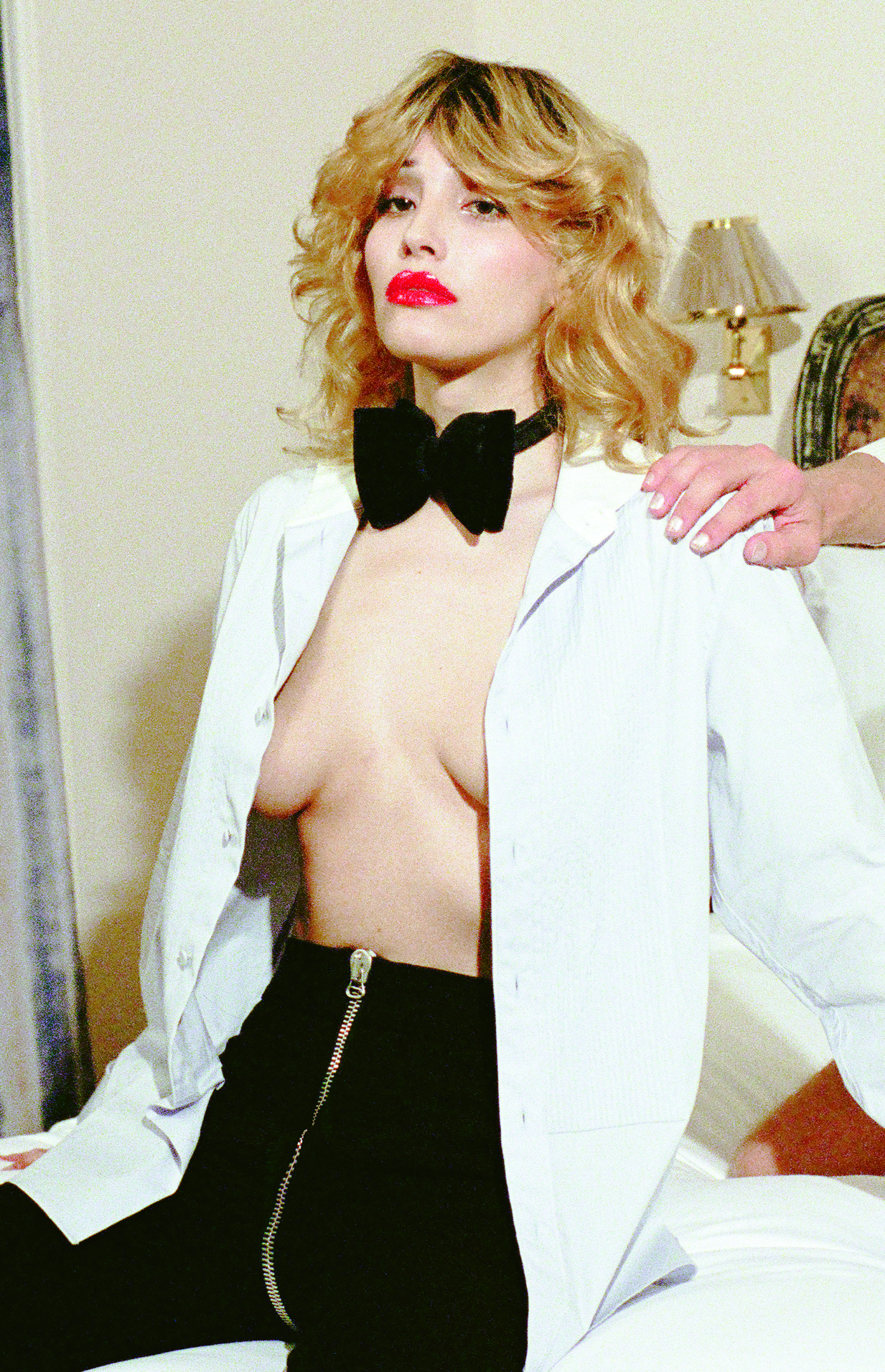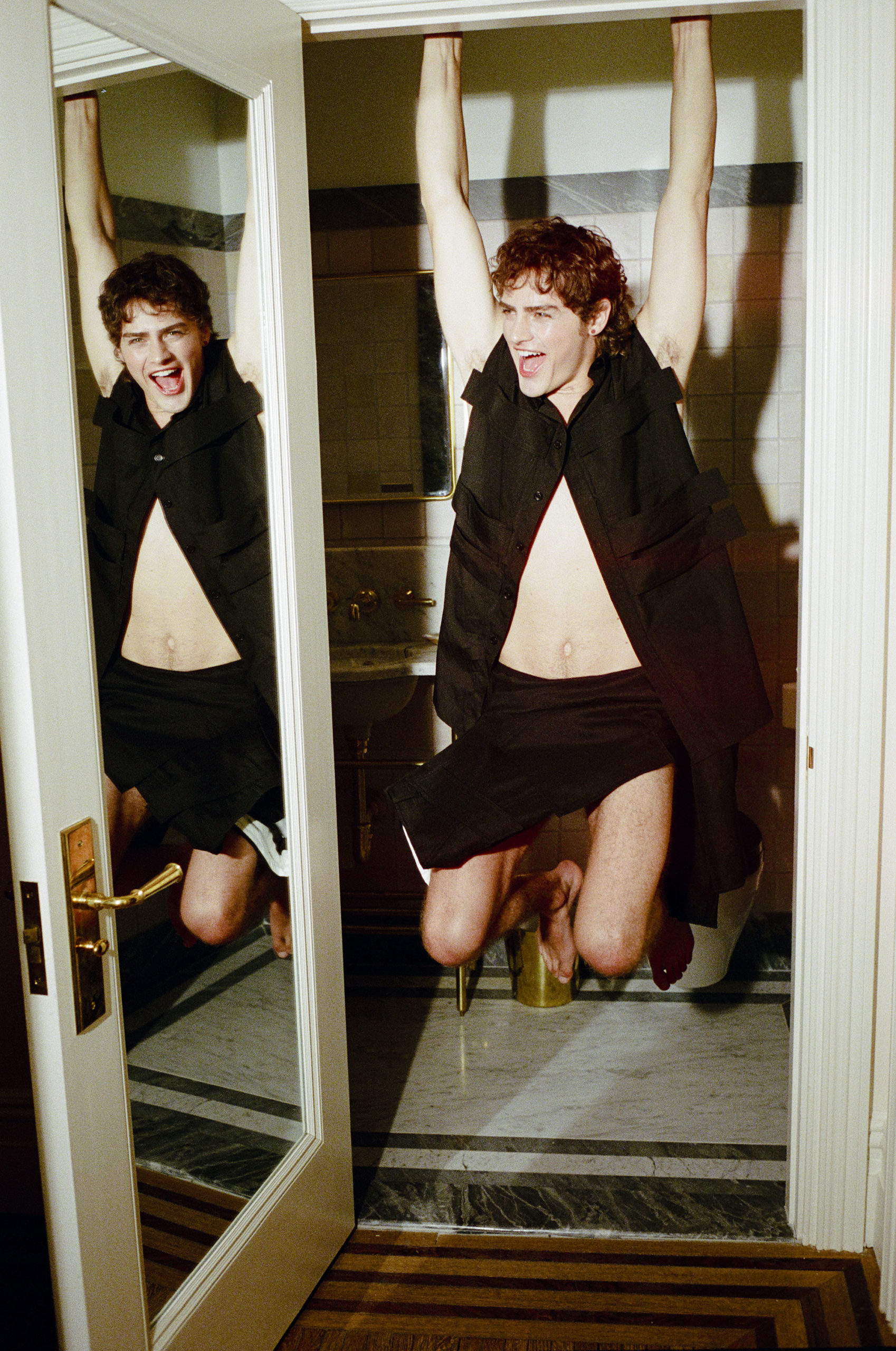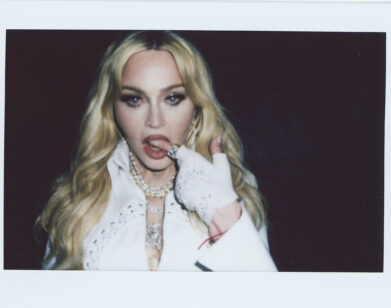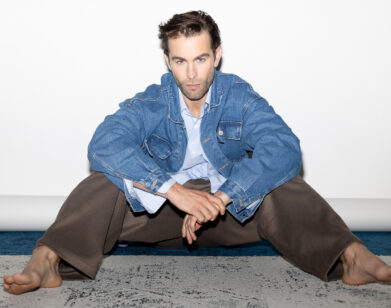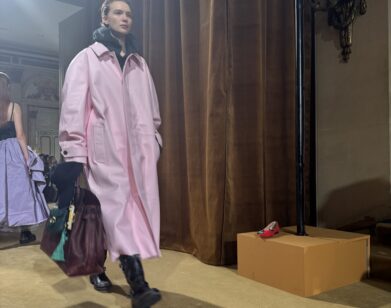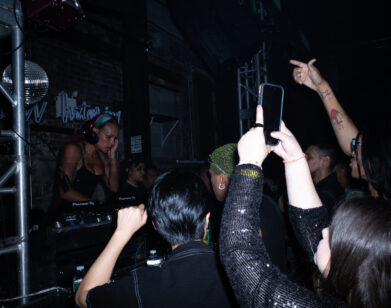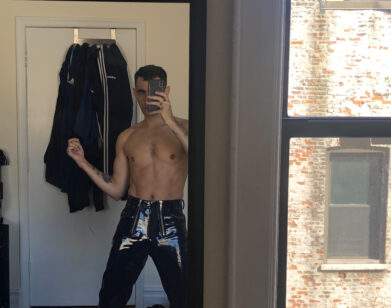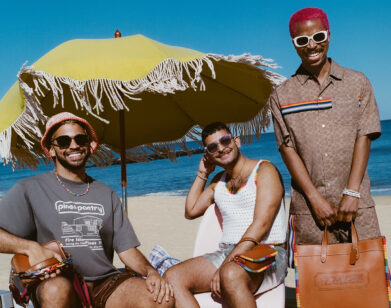STARS
Fin Argus and Zión Moreno on Pride, Cowboys, and Queer Storytelling
Interview and Farfetch brought Fin Argus and Zión Moreno, stars of the Queer as Folk and Gossip Girl reboots, to the legendary Hotel Chelsea—setting the scene for a deep conversation around self-discovery, representation, and the next generation of queer characters.
———
FIN ARGUS: How’s your day going?
ZIÓN MORENO: Really good. I’m recovering a little bit from last night. Are you back in L.A.?
ARGUS: Yeah. I had to fly in yesterday because I had a shoot. I’m sad, I was having fun in New York.
MORENO: I know, but this is great, because I feel like we didn’t get to talk much while we were shooting.
ARGUS: Then let’s do it. Where are you from?
MORENO: I was born in El Paso, Texas, but I like to say that I’m from New Mexico because that’s where I grew up.
ARGUS: A southern girl.
MORENO: A southwestern girl. A cowgirl at heart.
ARGUS: Same here, except I’m from Chicago. I’ve just always felt this deep longing to get swept off my feet by a cowboy and ride off into the sunset on a horse. I don’t know if that’s relatable.
MORENO: It’s my life’s dream to be swept off by a cowboy.
ARGUS: Next time I go horseback riding I’ll be sure to let you know. How does someone growing up in New Mexico get into acting? Was it something you were always interested in?
MORENO: I was always interested in storytelling. I grew up wanting to be a writer. That was my main passion, my main goal. I went to university for a creative writing and journalism program, but I felt like I was on a conveyor belt with everyone else. I wasn’t sure if what I was being taught was actually going to be utilized in any sort of tangible way. So I dropped out and moved to New York and started modeling, then I moved to L.A. I modeled on the side here and there, and then I met some people in the industry who persuaded me into acting. I never really thought I could do something like that. I’ve always been a lover of cinema, auteur cinema to be specific. So I said, “Why not? Let’s give it a shot.”
ARGUS: Right.
MORENO: The first audition I went on, I booked. I remember when I was on the set of my very first job and I finally felt like everything made sense in my life. I’m so grateful because I know that’s not the usual story for actors.
ARGUS: And now you’re turning out amazing project after amazing project. How is filming season two of Gossip Girl?
MORENO: It’s been wonderful. I don’t know if you can relate to this, but every day is so surreal. Just being in front of the camera, looking at all the moving parts that go into one take. I find it so gratifying. I don’t want it to come to an end. I’m happy.
ARGUS: I’m happy for you.
MORENO: I’m so happy for you, too. I know that Queer as Folk is about to come out.
ARGUS: Yeah. I can’t believe it’s happening so fast. I feel like we just wrapped. I’m so excited. I don’t understand how this is possible, but I’ve never played a queer character until now.
MORENO: Wow.
ARGUS: Queer as Folk is actually the first time I’ve stepped out of this boy-next-door niche, which is all I’ve been doing for years.
MORENO: Yeah.
ARGUS: It’s kind of like playing an angstier version of who I was at 17. It was fun to step into that headspace and play a queer person who’s so self-actualized and confident about themselves at such a young age. My character’s name is Mingus. In my mind they didn’t even have a moment where they were in the closet. They’re open and free with their queerness, and that’s representative of a lot of queer youth today, so it’s cool to see that normalized in storytelling.
MORENO: The key word is normalized, because we see so many queer stories where the whole plot is about them coming into their own queerness and whether or not they’ll be accepted. It’s really beautiful to be able to play a queer person that has been grounded in who they are from a very young age. It’s powerful for queer youth to be able to witness something like that.
ARGUS: Yeah. It’s about following queer people’s lives in the midst of their love, drama, romance, and messiness.
MORENO: Yeah. It’s about showing queer people in the same way cis, straight individuals have been portrayed for so long. We finally get to show the problems that everyone has while being queer.
ARGUS: Was there a moment growing up when you saw yourself and your queerness reflected in a character in TV or film?
MORENO: I stepped into my own transness when I was like two years old. Let’s be real. I knew I was a woman from conception, I just didn’t have the language. That’s something we can all relate to. I just didn’t know who I was, didn’t know where I belonged, and didn’t know if what I was feeling was correct. I thought there was something wrong with my brain chemistry or something. But there was a marking point in my life at around 12 years old when I was like, “I don’t want to exist because this is not who I am. This is not who I want to be seen as, treated as.”
ARGUS: You already knew yourself. Other people just needed to catch up.
MORENO: Exactly. Back then, there weren’t really any trans characters that I could see myself in. If anything, I’d see myself in Latina characters who were trying to survive, because I also grew up in a very impoverished state of being on food stamps. I had a single immigrant mother who raised three kids alone. I saw myself in my mother and my sister, and in the Latina women that I’d see on TV. I know there were other trans characters before this, but the very first time I’d seen myself represented, and this was very recent, was on the show Veneno.
ARGUS: So, so good. I watched it twice in a row.
MORENO: I found myself in Valeria, the character played by Lola
Rodríguez. But also in the grown sexual goddess, La Veneno. That was the very first time in my life that I was like, “This is trans representation done right.”
ARGUS: It’s such beautiful trans storytelling. It feels honest and authentic. It’s so important to see trans people cast in trans roles.
MORENO: Absolutely. Otherwise it’s stagnant, it’s stale, and it’s untrue. And that’s not what we’re here to do. When did you first feel represented in the media?
ARGUS: I was talking about this recently, which was why it was on the forefront of my mind, but it was probably with The Perks of Being a Wallflower. I must’ve been 13 or something, around the time that I was realizing I was queer. My journey began with sexuality, and then later on I started to realize that I was not a man, I was gender queer. For me gender is a very fluid thing.
MORENO: Of course.
ARGUS: In that movie I see that represented with the character of Patrick. He’s abundantly queer, and there’s a scene where he’s in drag for a Rocky Horror Picture Show live reenactment. When I saw him with his hairy chest and these beautiful earrings, I was like, “That’s me.”
MORENO: Yeah.
ARGUS: I didn’t know you could color outside the lines like that. I grew up in a really conservative town in the northwest suburbs of Chicago. I didn’t even know what being gay meant until I was in the fourth grade. I was probably 11 by the time I actually understood that it wasn’t just an insult.
MORENO: Every person has that momentous occasion where they finally feel like they’re being seen. And all those pent-up and repressed feelings of confusion and hatred—I’m so proud that storytelling has finally opened up and is giving the language to these younger generations so that they hopefully never feel that way.
ARGUS: Do you find that queer representation is changing? Are we on a good trajectory?
MORENO: I think so. There’s always room for improvement, and as time goes by we’ll understand it more. But playing Luna on Gossip Girl—a character like her has never been done before. She’s always been grounded in who she is, but it’s never really spoken about. And when it is spoken about it’s so subtle that the audience might not even pick up on it.
ARGUS: Right.
MORENO: As my showrunner said, “This isn’t the story of Luna coming into her womanhood. This is the story of Luna being Luna. Luna is known as Luna to these people, and that’s that.” It’s so important for trans people to be able to see this thriving young woman not sequestered by her own identity in a way that doesn’t allow her to live. Season two will touch more on her queerness, but in a very beautiful, classy, understated, and revolutionary way.
ARGUS: It’s not a story about this person figuring out they’re queer or figuring out who they are. It’s like, “I’m a trans woman and this is my life.”
MORENO: Yeah. You also get to see her dating the hottest men possible, and them not giving a fuck about her transness. I wish I could’ve had her experience, which brings me to another point. While it’s beautiful to see queer people thriving, the stories of them struggling should still be told because that’s the most prevalent queer experience.
ARGUS: Yeah.
MORENO: It’s nice to give a glimmer of hope, if you will, to the queer community and say, “This is possible, too. You can be happy. You can thrive. You can be understood. You can be accepted, and you can beloved.”
ARGUS: That doesn’t mean society has caught up to supporting and encouraging queerness, especially in more rural communities. Both facets of storytelling are necessary to queer development in media—they help each other.
MORENO: I completely agree. It’s heartbreaking to come to the realization that we’re in such a bubble of acceptance, and most of the world does not experience this.
ARGUS: That’s another reason why I was drawn to Queer as Folk. We’re watching these people thrive, but the characters aren’t sanctified. They’re messy, they’re real, they’re human.
MORENO: Exactly. We’re humans, at the end of the day. We make mistakes.
ARGUS: I have a question. What was the toughest scene you’ve ever shot?
MORENO: Oh fuck. I was the lead in a Mexican Netflix show, and I took it on because I’m Mexican myself and thought that it would be a really beautiful opportunity to bring light to queer culture, especially trans culture in Mexico. In it, my character is the queen bee of the school. She’s dating a really sweet guy who is very in love with her and knows that she’s trans but doesn’t want her to tell anyone because he’s afraid they’ll make fun of him.
ARGUS: Okay.
MORENO: They’re in an auditorium and they play a video of her as a little boy saying, “I wish I was a girl,” juxtaposed with pictures of her now. That’s when the whole school found out that she was trans. My love interest and I were being lovey-dovey, and as soon as that happens, he completely breaks free and is disgusted by me so he could save face in front of his friends, and I run out while everyone is laughing at me.
ARGUS: Wow.
MORENO: That was the toughest scene because, as you know, it’s not a one-and-done. There were maybe 50 takes of that and it was really, really taxing on me and honestly, looking back on it, quite traumatic. I was supposed to be in the second season but I left the show because it was too much for me because my whole storyline centered around me being bullied for my genitalia, for being trans, for being a traitor. It was really, really tough.
ARGUS: Oh my gosh. That reminds me of an experience I had in high school where I was in the bleachers and people started chanting and making fun of me. But yeah, as queer people it’s really hard to get into those headspaces and tell those stories because most of the time we can relate to them deeply.
MORENO: Exactly. That’s why it hurt me so much, because I was 24 at the time, and I’d lived my whole life outside of high school. I felt like I’d gotten past that trauma, but to be reminded of it again was really difficult.
ARGUS: Well, kudos to you for making it through that.
MORENO: Thank you so much. I’m going to ask you a few questions now.
ARGUS: Okay.
MORENO: What does pride mean to you?
ARGUS: Pride is relaxing into my queerness. Pride is like breathing through my queerness and letting it be at peace. It doesn’t feel like an active thing to me. There’s so much power in going in the streets and parading, but when I feel the most proud is when I’m with some of my closest friends, queer people, and we just sit and truly love each other. I like being in stillness with other queer people and just really being there for each other.
MORENO: I love that. I actually couldn’t agree more. What queer icons inspire you today, or in the past, whenever life came to be?
ARGUS: Probably the longest-running theme in my life is being in- spired by David Bowie. Maybe this vocab isn’t applicable to David Bowie, but he’s very much an NB [nonbinary] icon to me.
MORENO: I think so, too.
ARGUS: I’ve always found myself really inspired by the way he approached his gender presentation and the way he’d oscillate between musical performance and acting. Also, what an iconic thing to do—to make an album about your own mortality when you know you’re going to be dying soon.
MORENO: That album was rough. It was hard to hear this icon in so much pain, but it was also just so beautiful that, up to his dying point, he was still making art. He was bleeding through it.
ARGUS: That’s what I resonate with most deeply, the way that he approaches creativity. It really does feel like he’s bleeding out. I do the same thing with my music. It’s the way I figure out how I feel about things going on in my life. My brain is so disorganized and sometimes I don’t even know how I feel until I turn it into art.
MORENO: Exactly. Once you materialize it, then you understand what it was that you were feeling in the first place. I actually resonate with your David Bowie affinity. He led me through my childhood and taught me that it was okay to be different.
ARGUS: Same here. That’s what I’m doing with the rest of my day. I’m going to get on my skateboard, put in my headphones, be a moody little girl, and listen to “Ziggy Stardust.”
All Clothing and Accessories (worn throughout) available at Farfetch.
———
Hair: Sergio Estrada using Bumble and Bumble
Makeup: Ayaka Nihei using MAC Cosmetics
Production: Paige KV at Born Artists
Photography Assistant: Ryan Petrus
Styling Assistant: Tyler Okuns
Location: Hotel Chelsea

